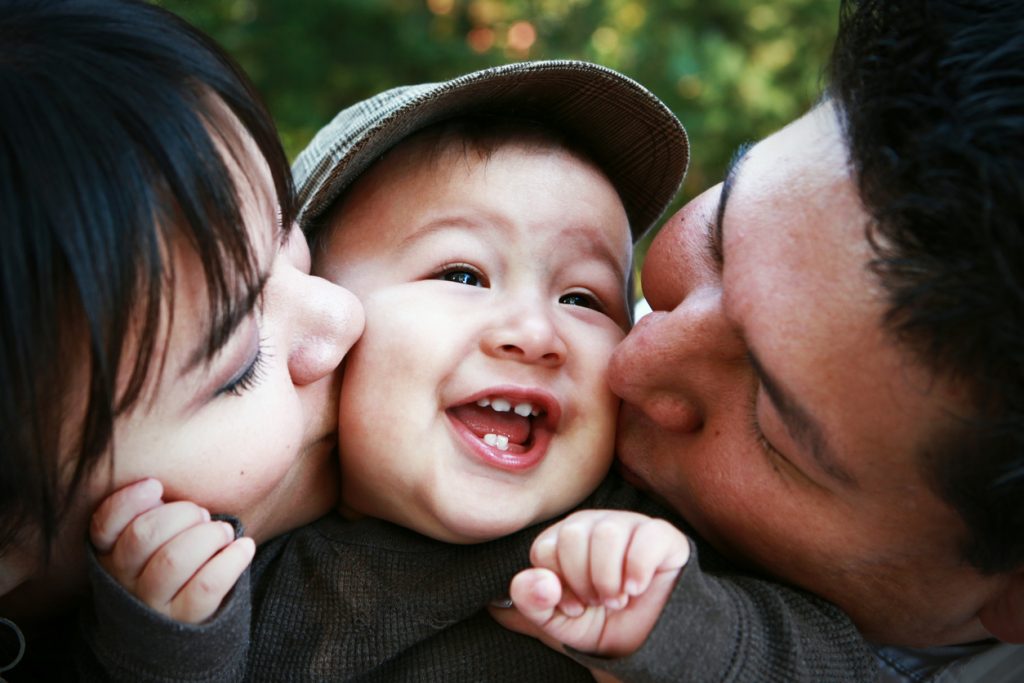7 Modern Lessons Every Parent Should Be Teaching Their Children

Being a parent these days is tough and confusing. Are we over-programming our children? Do you feel you compare yourself to other parents? Do your children compare themselves with their classmates? Are we all just winging this parenting thing, in an age where there is competitive everything? Can’t get your kid to open up, play on their own, or share their day with you? Well, here are seven modern ‘life lessons’ that I have taught and continue to instill, in my children, in no specific order, in this modern age of parenting.
SEVEN MODERN DAY LESSONS ALL PARENTS SHOULD TEACH THEIR CHILDREN (AND MAYBE THEMSELVES!)
1. Only Boring People Get Bored
When my daughter was three, she announced, “I’m bored.” I immediately shot back, “Only boring people get bored.” Since that day, almost 13 years ago, she has never, ever said she was “bored” again. Now I say this to my six-year-old, who always used to complain that he was bored no matter how many toys or gadgets he had. After drilling this into his head, he now happily plays with his toys, alone, forcing him to use his imagination. This lesson works because, said in the right tone, he doesn’t WANT to be bored. Albert Einstein certainly thought that using your imagination is incredibly important. He said something along the lines of, “Imagination is more important than knowledge. Knowledge is limited. Imagination encircles the world.” Brilliant, right? This article states, ”Early childhood (between the ages of three and six) is usually when children are most actively involved in their imagination. “Through pretend play children create their own imaginary world, allowing them to develop and learn from the new experiences they explore.” Encouraging my kids to use their imagination, by reminding them that only boring people get bored has also taught them to play independently, which often buys Mommy some quite time. (Oh, and a little bit of a sleep in!)
2. Other People’s Success Does Not Make You a Failure
Scrolling down social media these days, it seems that every parent has a child who is competing to be in the Olympics. Or at least their kids excel at something! Thanks to social media, it’s hard to find an ‘average’ kid, though, obviously, there’s nothing wrong with that. Many of my friend’s children are extremely talented, getting record deals, have managers, have professional coaches, have tens of thousands of followers on social media, at such young ages. My daughter has admitted to me that she does indeed get a little jealous when she sees someone winning a huge competition. My son will get jealous if he thinks his sister drew a better picture. But, since I’ve always reminded them, “Other people’s success does not make you a failure,” their jealousies don’t last very long. It also forces them to remind themselves of their own successes. (Sometimes I’ll say to my son, “Just because you think your sister’s picture is better, doesn’t mean that I don’t love yours!”) I make a point of sharing other kids’ successes with my daughter to show her that “Other People’s Success Does Not Make You A Failure.” She gets it, even if I have to remind of this occasionally. I could go on to brag about my children’s successes, but I won’t. I also teach my kids they should always be happy and supportive of other people’s successes, rather than envious, which I say is a “wasted emotion.” This, too, is something parents should be telling themselves. I often have to remind myself that other people’s success doesn’t mean that I’m a failure. A great lesson for every age!
3. Say it, Forget it. Post it, Regret it!
This is for those with pre-teens or teens or even for your parents on social (including me!) In the last two months, my 15-year-old daughter has not only shown me a full-on sex tape of two fifteen-year-olds which was meant to be an Instagram story, but someone videotaped it, so of course it made its round across most schools in the area. I made her delete it immediately. She also has shown me another 15-year-old who posed, and posted, numerous practically naked photos of herself, as if she were a Kardashian, on Instagram. Both girls got a lot of hate after both these instances went viral, which lead to strict consequences (One was charged because they were underage, thus the sex-tape was considered child pornography. The other? The jury is still out whether she will be expelled since her school has rules, not only on how you act at school but also outside of school.) I literally have told Rowan that if she’s stupid enough to post a nude or nearly nude photo of herself, or god forbid a sex tape, she should at least have the wherewithal to make sure her face is NOT featured in the post or video. (Who knew THAT would be a lesson I’d ever have to teach my kid?) This, too, goes for things she might regret texting to friends or boys. She knows, since I’ve drilled it into her still-evolving brain, that if you “say it, you’ll forget it.” But, “if you write it, you’ll regret it,” because it’s out there forever, and people keep texts. So, now, before posting or texting anything, she actively thinks about what the consequences could be, how the other person may respond, and if she will regret it, the next day. And it works! This, too, goes for us grown-ups. I don’t post or text anything (or I try not too) that I might regret.
4. Happiness is the Secret to Success
My main goal, as a parent, is to make sure my kids are safe, healthy but also just as importantly, to me, happy. I love this quote, that pops up with a photograph of John Lennon, although who knows for sure, for sure, if he said it. Still, it’s a quote I have reiterated to both my children and it’s worth repeating, over and over. It goes; “When I was 5 years old my mother always told me that happiness was the key to life. When I went to school, they asked me what I wanted to be when I grew up. I wrote down, ‘happy.’ They told me I didn’t understand the assignment, and I told them they didn’t understand life.” I so adore this! For a recent school project, my daughter had to interview someone who is “successful,” and also answer, “What is success?” I told her success can’t be measured, and that success is abstract. What some may consider successful, others will not. When my furnace breaks down, I don’t want Steve Jobs. I want the furnace guy. I think he’s successful! But everyone wants to be happy, right? When my daughter asked me for two words that summarize success, I told her happiness should be one. Her teacher, ironically, didn’t think that happiness was a worthy answer, so my daughter changed it to, ‘grit’ and ‘curiosity,’ before sticking to her guns. I told her I wouldn’t care if she got a bad mark on this assignment – and that, yes, happiness is success. Sure, you may want to make busloads of money, or be famous, but I remind my children that they should do things that make them happy, not what society says will make you happy. My son loves wearing costumes. I will take him out in public, even if he’s wearing a Captain America costume. Costumes make him happy, which makes mommy happy. And, yes, even my adult (daily) goal is to try and be happy, in a world that is tough and often depressing. Plus, the quote makes you think outside the box, which has taught my children to be confident, even if others don’t agree.
5. Make a Hug a ‘Ten Second Hug’
A while ago, I read a hug needs to be at least 10 to 20 seconds long to get the full benefits, which include reducing stress, increasing levels of oxytocin (the love hormone) and, yes, increasing happiness. So, every day, before my kids take off, or when they come home, or when they say goodnight, or sometimes as we pass each other in the kitchen, I always say, “I need a ten-second hug!” And we won’t let go until I count to ten in my head. According to this article, hugs may protect you against illness, thanks to its stress-reducing effects. Scientists have found that touch can reduce anxiety in people with low self-esteem. Family therapist Virginia Satir once said, “We need four hugs a day for survival. We need 8 hugs a day for maintenance. We need 12 hugs a day for growth.” I certainly don’t hug my kids 12 times a day (!) but I do hug them a lot. (And ten second hugs also helps reduce MY stress.) It’s a win/win parenting lesson!
6. Win Big Or Lose Big
No one likes a sore loser. Likewise, no one likes an annoying winner. Of course, winning is better than losing. But kids these days are so competitive that many forget that, at a young age, they are supposed to be having fun! Kids these days also get awards for, well, everything. Last summer, my son made it only twice to his soccer games/practices and he STILL got a medal. Children, these days, need to learn both how it feels to win and how it feels to lose, while still having fun competing, while also realizing that a medal is not guaranteed. So I tell both my children to “Win Big or Lose Big” because, I truly to believe when they hear me say this, that they are going to have fun whether they win or lose. When my daughter played goalie, her team lost 8-0. But she and her teammates came out laughing, because they lost BIG. It takes the pressure off kids to always have to win and it also makes it more fun to lose!
7. Play “Rose and Thorn” Every Day
What does this mean? Well, in this game, you ask your children what their “rose” was of the day (their highlight) and also their “thorn,” (the worst part of their day.) This is easy with my outgoing teen. And it has, quite literally, worked wonders getting my son to open up with me. Whenever I used to ask him questions like, “Who did you play with at school today?” Or, “What did you do at school today?” my six-year-old would answer, “I did nothing.” And, “I played with nobody.” I used to joke, “So how was “Nothing” and “Nobody” today?” which made my son smile, but still I didn’t get any real answers. But when I started to play this game with him, before bed, I’d actually get…full sentence answers! When I ask for his “rose,” he’ll say, “Playing with Aiden at recess and you know what else was so crazy mommy?” before he launches into a funny story. This game has actually turned him into a chatty little boy! When I ask what his ‘thorn’ was, I can tell he is pondering, but I still also get a full sentence answer like, “My thorn was when so-and-so pushed me,” which leads us to discuss other classmates. For my teen, when I ask her what her rose and thorn of the day was, it’s like a “data-dump” for her. A rose, for her, might be “sitting with my friends at lunch,” and her thorn might be that she was mad at herself for getting what she thinks is a ‘bad’ grade. Either way, getting it out in the open, makes her less anxious and realize that not every part of her day sucked. And then I’ll tell them, separately, what my rose and thorn of the day was. It helps everyone communicate about their days in a fun way. It teaches them that not every second of the day is going to be a happy one, but that you can always find happiness in at least one thing a day, no matter how small it may seem. Personally, I think, it teaches gratitude, when they share their rose while also feeling better about their thorn because they aren’t keeping it bottled up.
Hope these little tips help. I would LOVE to hear the modern lessons you teach your children.












